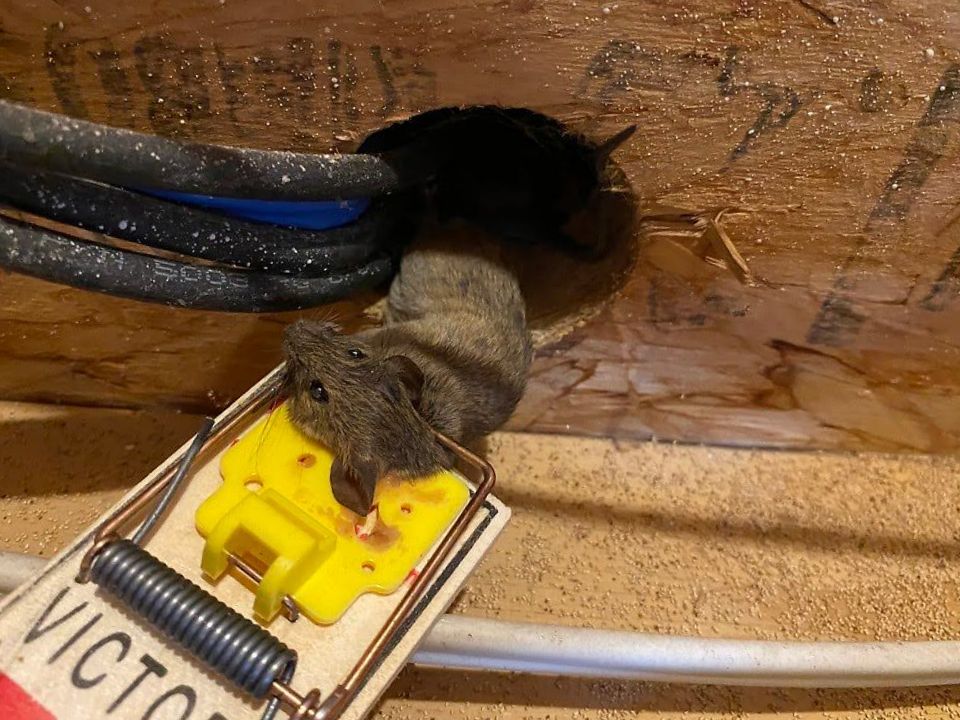
These small rodents are actually very good at a lot of things, although many of those talents are overlooked a little by humans who no longer want them hanging around on the property.
To start with, mice have very bad eyesight, but they're really good at figuring things out with other senses, such as their sense of hearing. Humans can hear only a small band of frequency — 20 Hz – 20 kHz. It is typically known that larger mammals have a lower band of audible frequency. Mice can not only hear a much larger range or band, but also much higher frequencies, too — 1 kHz – 70 kHz.
Not only are mice pretty good in the hearing department, they also have a very keen sense of smell, and they use both senses together to find spaces of safety, predators, and even prey.
Now add to the list a few more facts —
> Mice can run at up to 8mph.
> They can fit through a gap the size of a pencil eraser.
> Any gaps they can't fit through can be chewed to make larger.
> They can also swim very well.
And let's elaborate on the swimming fact. In studies, mice have been shown to tread water for up to three days at a time, without getting exhausted or fatigued to the point where they can longer carry on. This is pretty astonishing for a ground-dwelling animal.
Not only that, mice can hold their breath for much longer than you'd think, underwater. Again, studies have shown mice holding their breath for up to three minutes, and in some cases even more than that. Just to put that into a little perspective, humans can only hold their breath for around two minutes before losing consciousness, underwater. Compare the size of a human's lungs to the size of a mouse's lungs and you can start to understand why this three-minute mark is such a revelation.
Here's another fun fact for you — mice can reproduce at such a staggering rate, very few other animals can come even close. One single female can have up to 120 young in a single year, and a group of mice in a building will normally consist of one male, plus a few females, and their offspring. The male will mate with every fertile female in his group, so if that's 3 fertile females, you're looking at 3 x 120 mouse pups in a single year. Mice also do not understand incest, although they are less known for breeding with siblings and relatives than rats are. Rats will literally mate with anything, brother, sister or not.
In one experiment, performed back in the sixties, ideal conditions were provided to small populations of rodents. Within just a couple of years, the small groups had extended to over two thousand individuals. That's an example of what could happen if you do not react to a rodent infestation in your home or place of work quickly or effectively enough.
Mice are incredibly adaptable animals, and they'll survive in situations where many other animal species would fail. That's what has caused them to become one of the most populous animals on earth, with rodents creating problems for homes and businesses across the globe.
It's not a good idea to underestimate this animal, or the speed at which it can reproduce. If you notice a mouse infestation in your home or place of work, get in touch with us today
Go back to the mousecontrol.org home page.